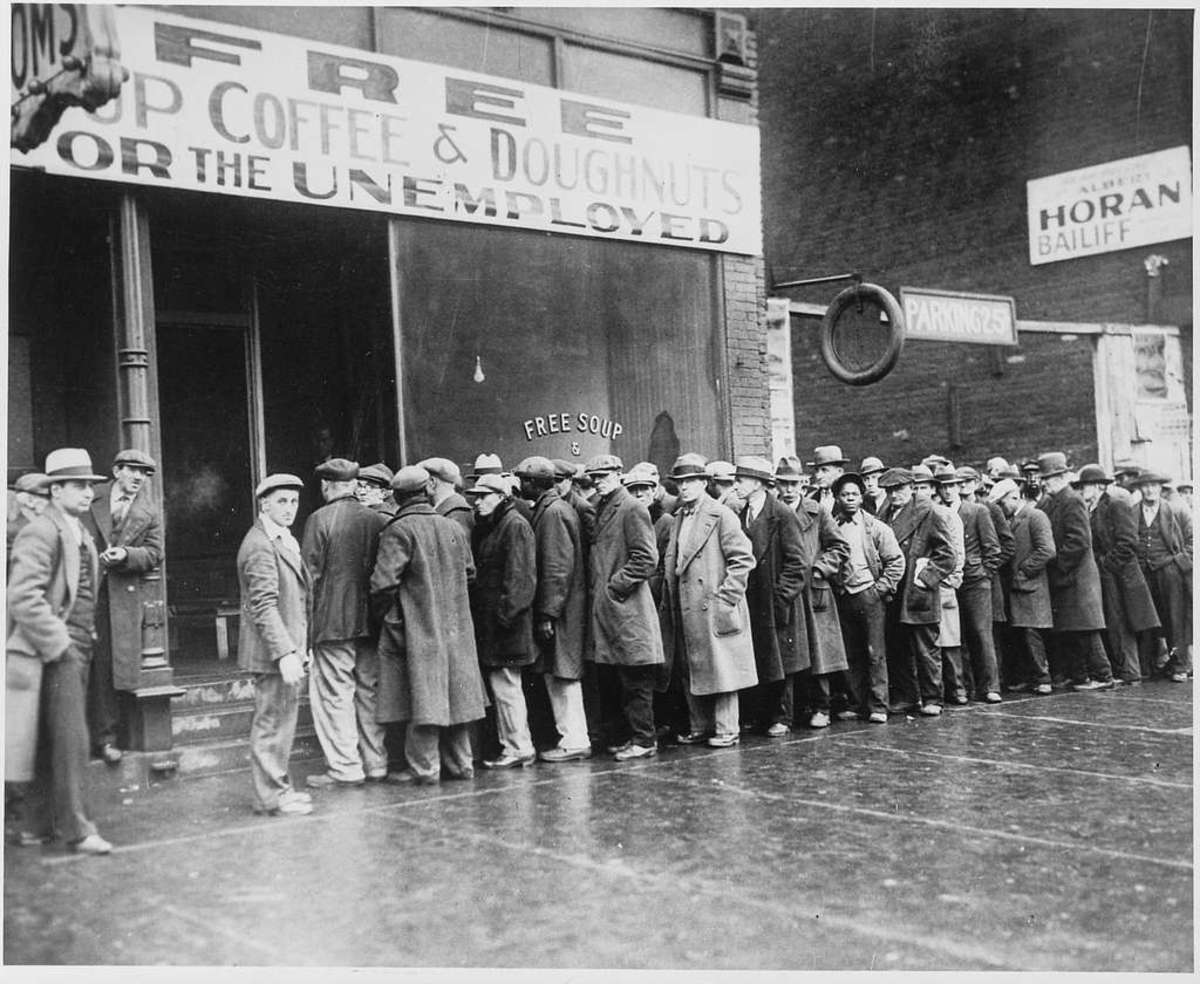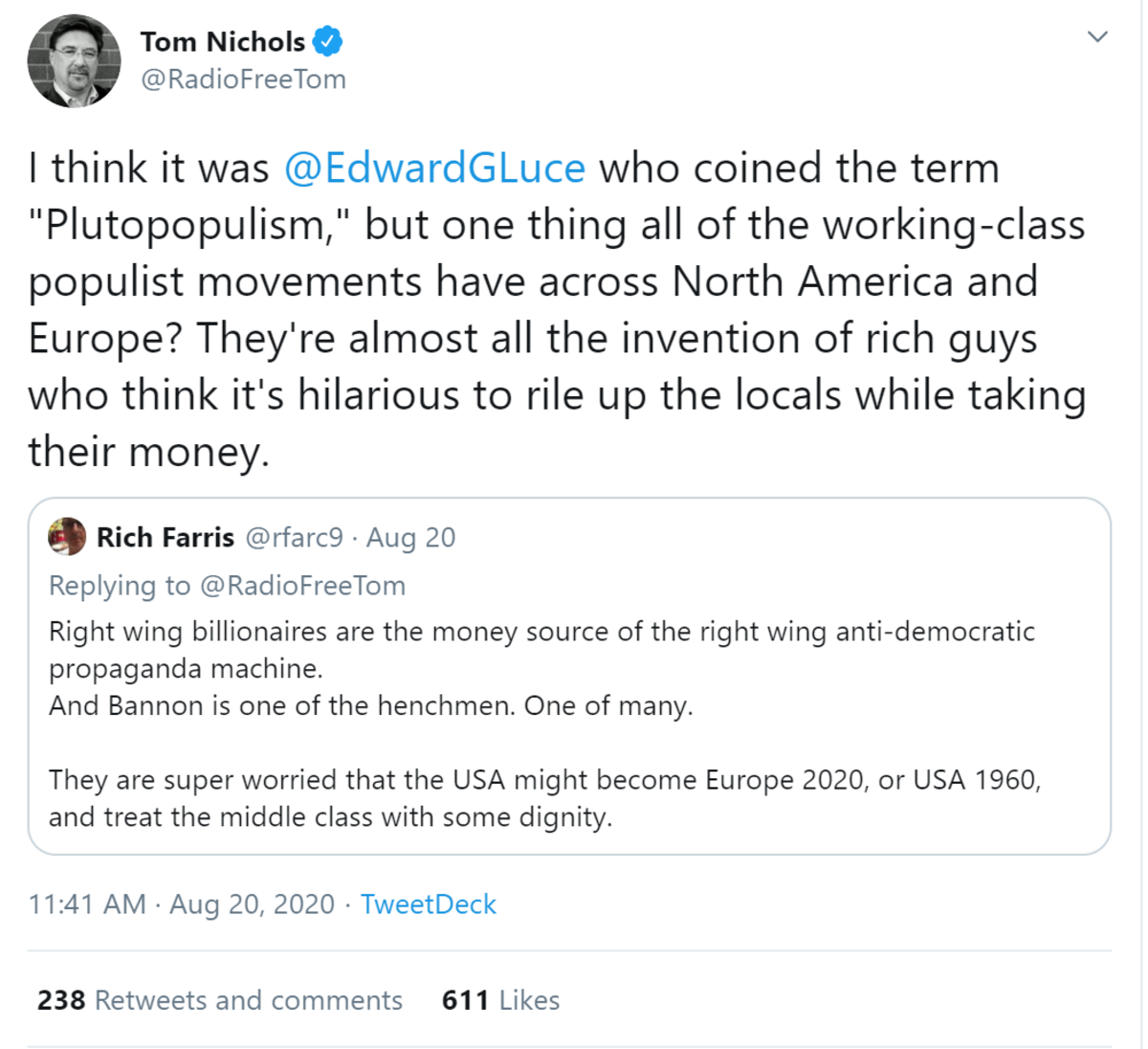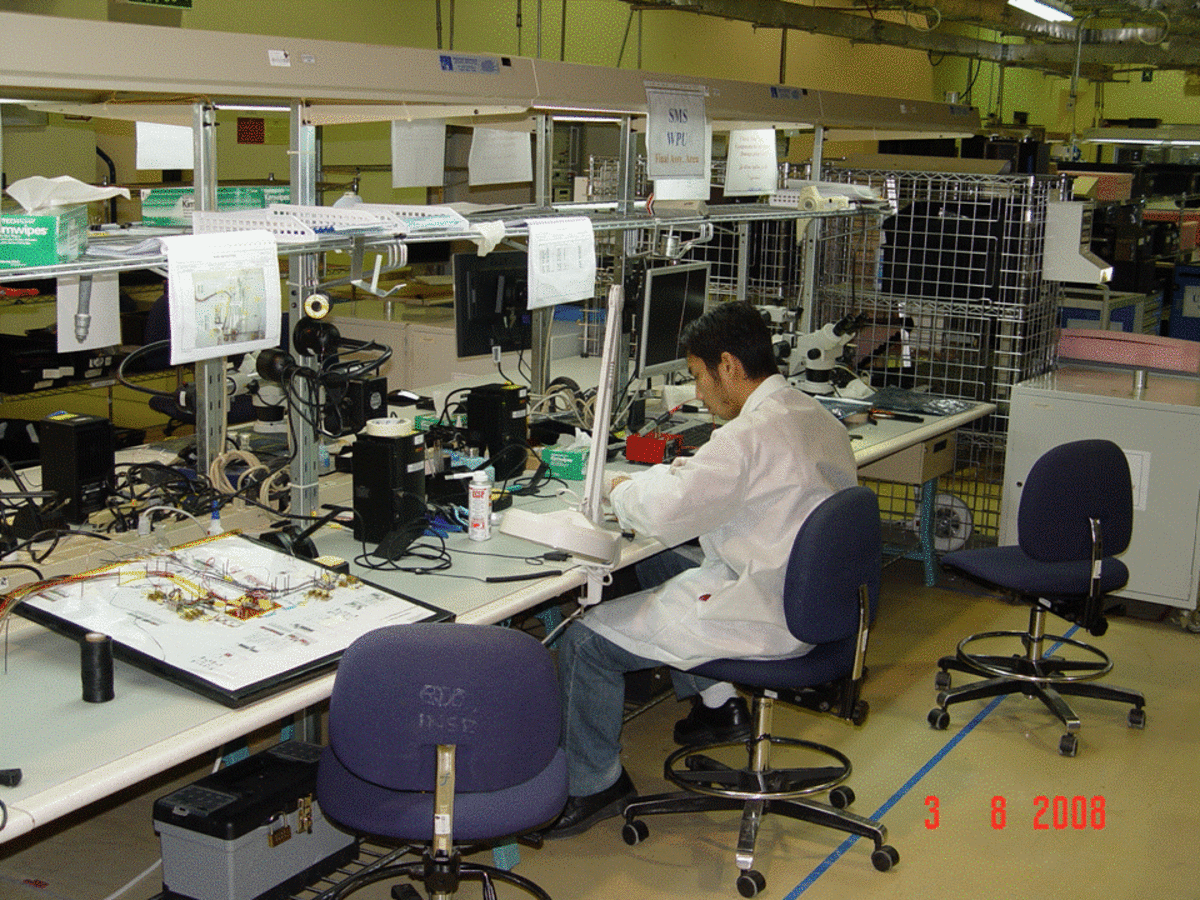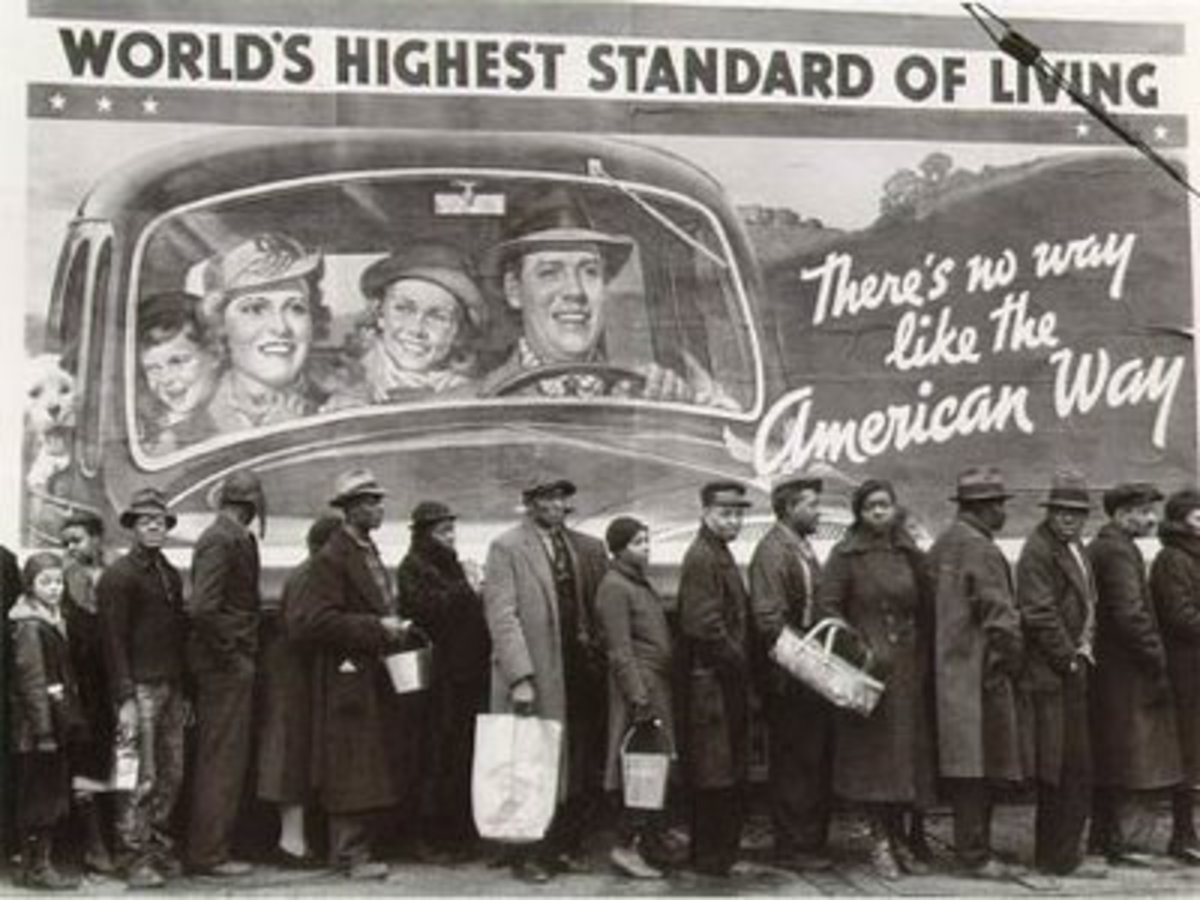Why Austerity is a Con-trick
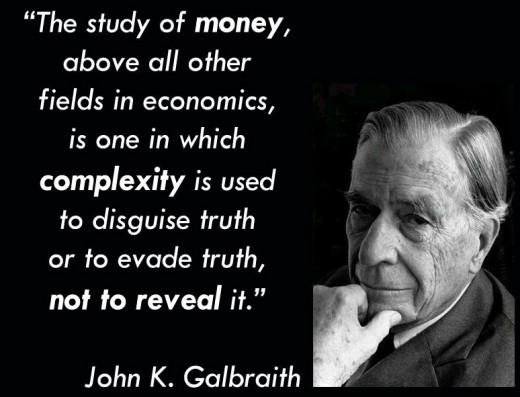
How Can Banks Go Broke? When They Have a Licence To Print Money
Governments all over the world are imposing austerity on their people and claiming it's because they've had to bail out bankrupt banks. To pay for the folly of the financial world, governments are slashing public spending, which generally means cutting public services.
However, the executives of failed banks still get million- dollar bonuses, high wages and pensions, and seem to being rewarded for failure. At the same time, the wages of the workers continue to be squeezed, and public services are being slashed, even though they had nothing to do with the banks' financial difficulties.
As many people all over the world are pointing out, the rich seem to benefit from austerity, while it greatly undermines the living standards of ordinary people. But as it is the rich who have more influence over governments than ordinary people, then perhaps it is no wonder that austerity is a government policy
The whole argument for austerity is that governments are billions or even trillions of dollars in debt. But what is not made clear is - to whom do we owe these debts? Who has trillions of dollars of spare money that they can lend to struggling countries? We are told it is the banks, but the crisis was caused by banks going bust, so it seems they don't have this sort of money to lend. Other people have claimed it is the IMF or World Bank, but if that is the case, where did they get all this money from? And if they have so much money, why didn't they bail out the banks, instead of leaving it to governments or the taxpayers?
It seems that, "governments have money for wars but not for the poor". They will tell you they cannot afford money for schools, hospitals and social services, but if they are involved in a war, then trillions of dollars are immediately available to fight it. Where all this money suddenly comes from, is never made clear
So how do we make sense of all this? What exactly is going on? The biggest problem in trying to understand large government debts, is that the public are never told the whole truth by governments or the media, that it is impossible for banks or governments to go broke, simply because they have the licence to print money. Nowadays they don't even have to do that; electronic money is simply created within a computer, by typing in the amount on a keyboard. Ever since money was invented, 2,500 years ago, in the form of coins, governments have always had the ability to make their own money and use it however they like
I am sure many people will dispute this, but if you want proof, you can find it through what happened during the time of the Second World War.
In this conflict Nazi Germany conquered nearly the whole of Europe and it took the might of the British Empire, the USA and the Soviet Union to finally defeat them. The surprising thing is that only a few years earlier Germany was one of the poorest countries in Europe. Germany suffered more in the Great Depression than any other Western country. It was so bad for them, that in 1933 there were over 6 million people in Germany who were unemployed. Yet, six years later, after Hitler gained power, they quickly created the best equipped army and air force in Europe.
Modern military weapons are not cheap. A tank costs far more than the most expensive luxury car and an air force bomber costs about the same as a airliner. Then there's fighter aircraft, field guns, submarines, battle ships and vast quantities of ammunition, shells, torpedoes, bombs and rockets, all of which are extremely expensive. So where did the money come from to pay for all this? The German Nazi government simply printed it.
The same is true of both the USA and Britain. The USA also suffered in the Depression of the 1930s, yet in 1941, when it was attacked by Japan, it quickly created a larger and better equipped army, navy and air force than even Germany and Japan had. Not only that, after the war the USA created the Marshall plan and lent Europe more than 13 Billion dollars to restore its economies. Where all this money came from, was never made clear.
Britain, in spite of the Great Depression, also had the money to fight a war with Germany. It soon produced enough aircraft to mount 1,000 bomber raids on Germany, and kept on replacing the larger numbers being shot down by the German night fighters and anti aircraft guns. It also replaced thousands of merchant and warships that were being sunk by German U boats and aircraft. Then after the war, when Britain was supposed to be bankrupt, it started the welfare state. The Labour government of 1946 created the National Health Service that guaranteed free health and dental care for every person in Britain. There was hardly any mention of where the money came from to pay for this. There was certainly no talk then of cutting public services to pay for the war; in fact, the opposite was true
In Germany it was even worse; many German towns and cities were destroyed by the night and day bombing of the British and US air forces. Yet the money was found to rebuild them. From where?. Austerity was not imposed on the West German people either. The opposite was true. In the 1950s West German people enjoyed a boom period of full employment with well paid jobs
What governments try to tell us is that all these things were paid for by taxation, but is it true? After all, Britain, USA, Japan and Germany had just gone through 4 -6 years of war, during which governments had to pay for all the arms, equipment as well as the pay of millions of military personnel. So who paid the taxes for all this? After all, the vast majority of workers were making munitions in factories or serving in the military, all of which was paid for by the government. It wasn't taxation which paid for the war, it was done by simply printing money. Taxation doesn't pay for anything, though taxation does serve another purpose, which I'll get to later on.
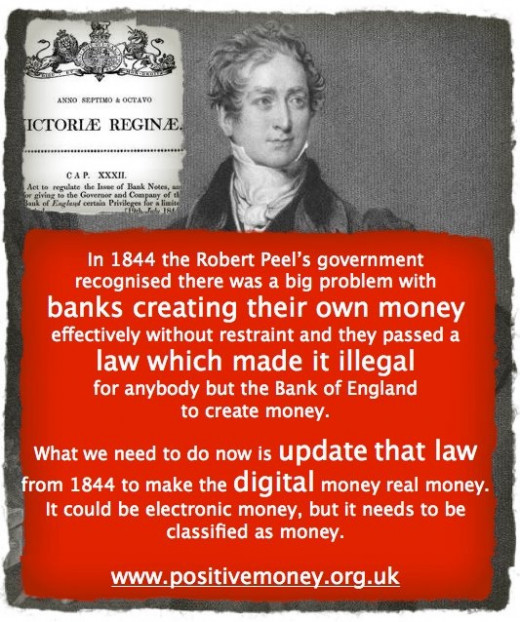
How banks make money
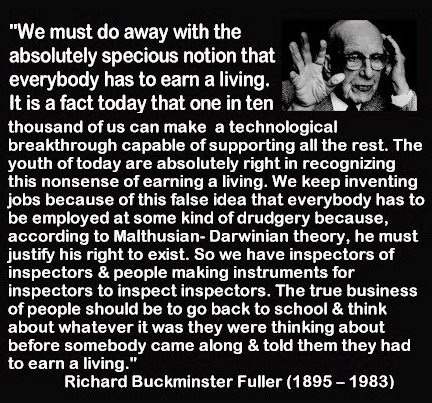
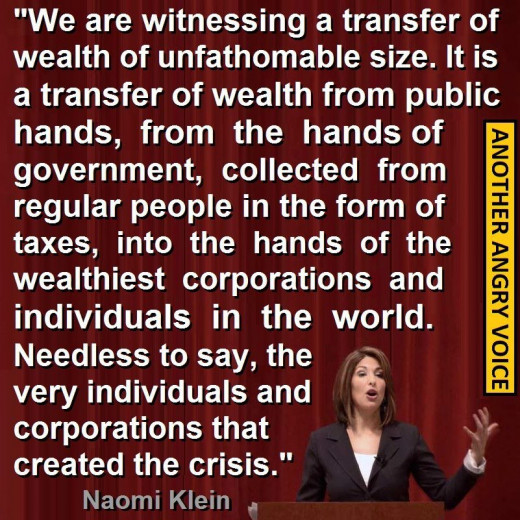
The truth About Taxation
One of the reasons that neither governments nor banks can continue to print money endlessly, is because it will create inflation. The more money they print the more it will go down in value. Harold Wilson, a British Prime Minister explained this when he pointed out, "One man's pay rise is another man's price rise."
The price of every item we buy is created by the wages of everyone who makes, sells and delivers it to us. The higher the wages and the greater number of the people involved, the more expensive the product becomes. So if governments or banks print too much money, and people end up with higher wages, the price of goods goes up by the same amount
As many governments have found in the past, they can't just print money to make themselves or the country rich, because the money becomes devalued through inflation. The only way a country can be rich is through its productivity. The more productive and efficient a country becomes in making goods, the more wealth is created. Nowadays, with modern technology, computers and robotics, goods can be made very cheaply and efficiently, but ordinary people do not enjoy the advantages of this. This is because, by using the tools of austerity and high unemployment, the benefits mostly go to a wealthy elite
At one time, working people were paid such low wages that their income was unlikely to create inflation. Then in the 20th century, with organized unions, the workers were able to demand higher wages. To stop this creating too much inflation, governments began to tax the workers, to take money out of the economy and keep inflation low. The paradox of taxation is that it doesn't make governments rich, because with their ability to print money, they don't need to worry about tax. It exists only to take money out of the economy, to bring inflation under control. It also helps hide the truth, that governments and banks can create money out of thin air. Naturally, governments don't want to tell people that their taxes are only being used to keep inflation under control. Better to say that it is necessary to pay for essential services and leave it at that.
So if governments and banks have the licence to print money, how is it possible for banks to go broke and governments to get into debt? The answer is that the debt is not real but is used to hide another hidden agenda.
Back in the 1930s we had what was called, "The Great Depression". We're told that this was caused by a stock-market crash in the USA in 1929. All over the world there was high unemployment and the living standards of ordinary people decreased. For many years governments seemed to be unable to lift their countries out of this Depression, but one economist showed how it could be done. John Maynard Keynes pointed out that the reason why countries were in a Depression was because of high unemployment. This meant that governments could easily get their countries out of the Depression by artificially creating full employment. The reasoning goes something like this
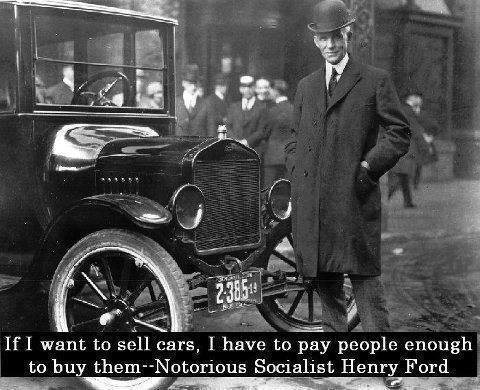
High Unemployment
When you have low wages and high unemployment, workers will only pay for the bare necessities. As a result, the sales in shops go down, factories have far less demand for their goods and eventually close, causing the whole economy to stagnate.
If, on the other hand, you have full employment and decent wages for workers, they are far more likely to buy goods and services. They will buy more from shops, which in turn creates a demand for goods from factories. Factories will employ more workers to meet this demand and the whole economy will boom. This sounds like a win-win situation that benefits everyone, but it does little for the very rich or what is called nowadays "the 1%". Unfortunately, it is these people who have a far greater say in what governments do than anyone else.
The biggest problem with full employment as far as the rich are concerned is that it gives too much power to the working class. When jobs are easy to obtain, a worker who doesn't like his or her pay or working conditions, is free to go and get another one. Employers have to give in to their employees demands for better pay and working conditions, if they want to keep a full work force. As a result, employers are competing with each other, which gives great power to working people. This is wonderful for the 99% but not for the 1%, and as far as governments are concerned it is the opinion of the wealthy 1% that is far, far more important than that of the rest of us.
Keynesian economics was used in all Western governments from the end of WW2 to the 1970s. In that time all these countries enjoyed year on year growth with the standard of living for working people, increasing all the time. But the gap between rich and poor in those years greatly decreased and for this reason Keynesian economics was abandoned in the 1970s. Since then, governments all over the world have engineered high unemployment to keep the working class powerless.
This is the way it works. If there is high unemployment, it is difficult for working people to get a job. So if workers are not happy with their pay or working conditions they either have the choice of accepting them or being unemployed. This allows employers to drive down wages and impose poor working conditions. It is noticeable that since the 1970s the gap between rich and poor has been growing. Governments are the biggest employers of workers in any country, so it can easily cut down or increase employment by how much it chooses to spend on public services. When a politician says, "we need to cut government spending," what he really means is, "we need to have more people unemployed".
You would think the rich would be happy with this situation, but it seems they are not. For many of them, the gap between rich and poor is not big enough. This is why, in the 21st century, they have engineered a banking collapse. They claim that banks have become bankrupt, but this is impossible while banks have the power to create their own money. What it's really about, is a desire to impose austerity onto the public, push unemployment even higher and cut public services. It seems that in their greed, the rich are willing to force things as far as they can possibly go. They are willing to engineer another banking crisis so they can claim we need more austerity. And if they can get away with this, without any penalty, there is nothing to stop them doing it again and again.
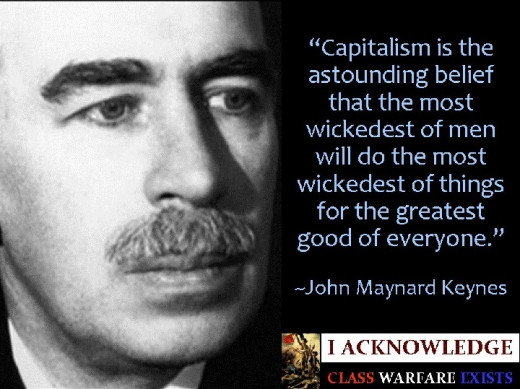
- You Never Had It So Good
Since the 1970s governments have deliberately created high unemployment and Austerity, to drive down wages of the working class and increase the gap between rich and poor.
Bernie Sanders and Jeremy Corbyn
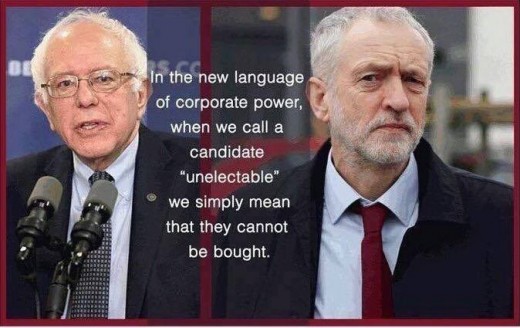
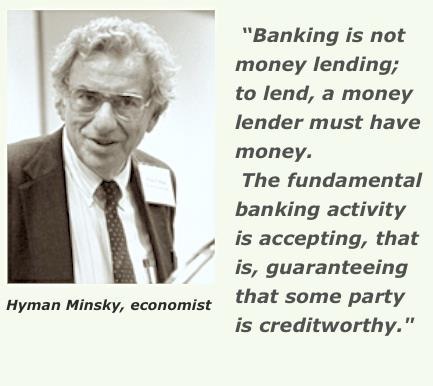
The end of the Cold War and the end of Keynesian
So what can the people do about this? The first thing to realise is that we do not have a free press. We never did. The ruling elite are very aware of the power of newspapers and TV to indoctrinate the people into what they want them to believe. To actually think they wouldn't use this power for their own ends, is being very naive. All newspapers and TV stations are owned by a handful of very rich men or the Government. And it is these people who control everything that comes from the media
They also control the education system. I saw that clearly when I learned about Keynesian economics at school in the 1950s and 60's. We were taught then that it was the best economic system ever devised. Then in the 1970s it was ditched and suddenly it was like Keynesian economics never existed. All of Keynesian theories were either censored or if they were mentioned it was to criticise and condemn them as a failure. Today, we now have a lot of misinformation about Keynesian economics, claiming that it is something that it is not. For instance, it is said that the tax breaks governments are giving to the rich is Keynesian economics. This is in fact 'trickledown economics' which is something very different. Keynesian economics is about giving wealth to the working people and not the rich.
Fortunately, today we have the Internet, where ordinary people can get information out to the people, even though we know that large organizations like Google and Facebook do attempt to censor the flow. The more people can be educated in what is really going on, the less likely the ruling elite can get away with robbing us.
There was a period from the end of WW2 to the 1970s where we did use Keynesian economics but the reason for this was centred around communism. At the end of WW2 the ruling elite of the West really feared a world wide communist revolution. This is why we had the Cold War, in which the West threatened the USSR, with nuclear weapons, and the wars in Korea and Vietnam. The USA fought the Vietnam war because, at the time, it feared what was called, "the domino effect". It was believed that if Vietnam became communist the surrounding countries like Cambodia, Laos, Burma, Thailand, Vietnam and Malaysia, would also fall to the communists. If that happened, it could even spread further than this, to countries like India, Indonesia and the Philippines. As it turned out, when Vietnam did fall to the Communists, it spread to Cambodia and Laos but not any further
The USSR was encouraging communist revolutions in any country where people were dissatisfied with their government, and it had a big success in the case of Cuba and Angola. So the ruling elites in Western countries had good reason not to upset the public because of their fears of Communism. This is why the USA had the Marshall plan after WW2 and why they were willing to tolerate Keynesian Economics. But in the 1970s it became clear that communism was failing. The USSR was losing the cold war since it lagged behind the USA in weapons technology. The domino effect didn't happen in Southeast Asia in spite of Vietnam and Cambodia turning communist and it was also contained in South America and Africa. It didn't spread further from either Cuba or Angola, probably because communism failed to make life better for the workers than capitalism did at this time. Though this wouldn't be the case today.
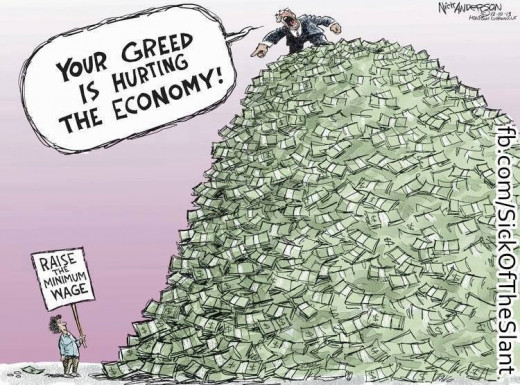
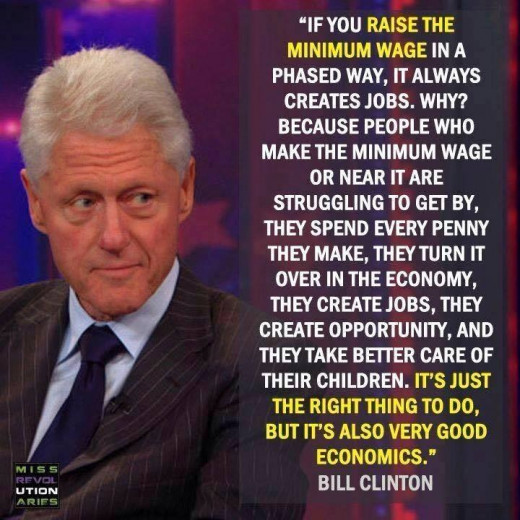
What can the people do?
At the end of the 1970s, Keynesian economics was ditched, and later on, when the USSR broke up and the Cold War ended, the ruling elite knew the communist threat had passed. It meant they now had no reason to hold back from robbing ordinary working people. They have the political parties sewn up. If the voters do not like one government and throw it out, they soon find that the policies of the new government are not much different to the last one.
In recent years some people have turned to extreme left wing or right wing parties but many still fear them. They are seen as either communist or fascist. People remember or read about the behaviour of communists or fascist dictators like Stalin and Hitler and avoid extreme Parties This is why they still remain in the minority.
As a result, there are no political systems that people can turn to that they feel will not let them down. Left wing parties in recent times tend to keep unemployment a bit lower than right wing parties by spending a bit more on public services, but that is the only difference. However, things are now changing with the rise of politicians like Jeremy Corbyn, Bernie Sanders and Jill Stein who are not willing to compromise with the ruling elite and are willing to stand up to them. The only way forward is to support politicians like this, to bring about a more equal society for us all.
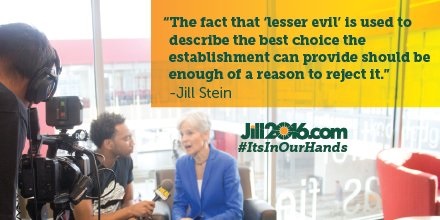
- Profits At High, Wages At Low - Business Insider
Our priorities are seriously screwed up.
- The Great Debt Delusion: How Math Keeps Proving Austerity Wrong - Matthew O'Brien - The Atlantic
The austerians' foundational text lost a battle with Excel -- and reality
Austerity: The History of a Dangerous Idea
Positive Money
- Could These 3 Simple Changes to Banking Fix the Economy?
If someone told you that a mountain of personal debt could be cleared via 3 simple changes to the way that money and banking works, would you like to know how?
Steve Keen the anti economist
- Wealth doesn't trickle down – it just floods offshore, research reveals | Business | The Observer
A far-reaching new study suggests a staggering $21tn in assets has been lost to global tax havens. If taxed, that could have been enough to put parts of Africa back on its feet – and even solve the euro…
Germaine Greer on the money - outs banks & banksters
- Masters Of Money
This article is a summery of three BBC TV programs on the economic theories of Keynes, Hayek and Marx.
Basic Income: An Idea Whose Time Has Come | James Mulvale
- The Economic Argument Is Over — And Paul Krugman Won | Daily Ticker - Yahoo! Finance
From the blog Daily Ticker: For the past five years, a fierce war of words and policies has been fought in America and other economically challenged countries around the world. On one side were economists and politicians who wanted to increase govern
© 2013 William Bond

